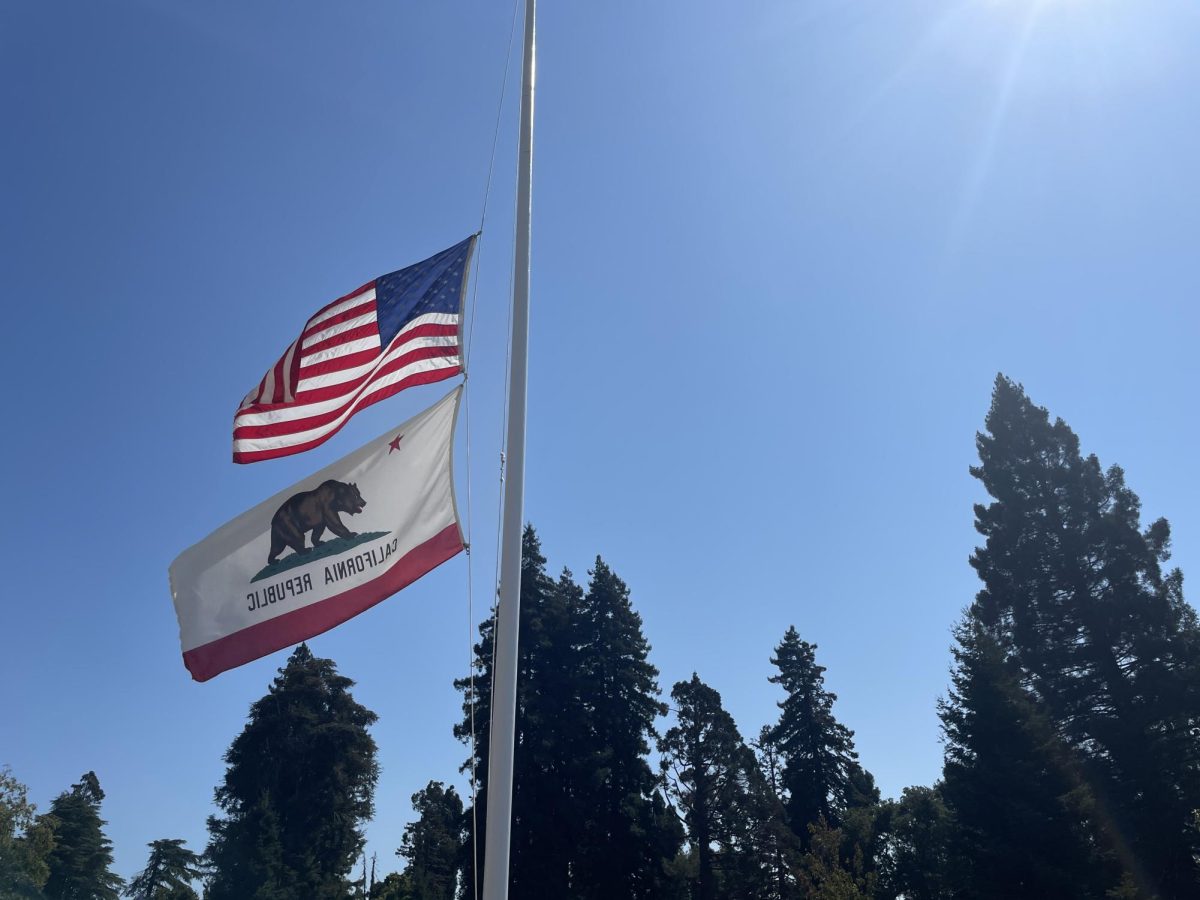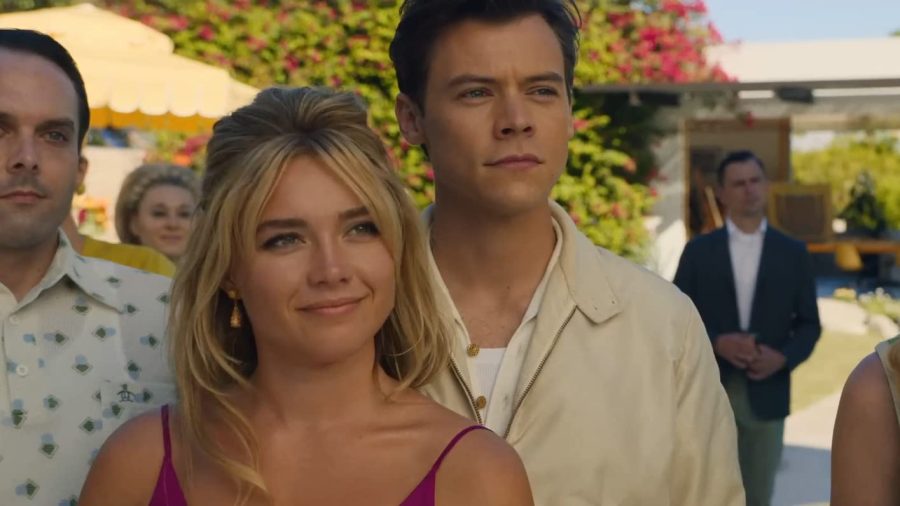Despite flaws, ‘Don’t Worry Darling’ deserves your time
Jack and Alice Chambers attend a gathering at the house of Project Victory leaders Frank and Shelley. At this exclusive get-together, Frank establishes the neighborhood’s mission and acknowledges the importance of women in the community.
October 17, 2022
(Warning: this review contains spoilers.)
Don’t worry about buying a ticket, darling. It’s not worth it.
That’s the headline I had in mind for my review of Olivia Wilde’s “Don’t Worry Darling” when I saw its 38% rating on Rotten Tomatoes. Thankfully, I didn’t read any detailed reviews until after I saw the movie because, personally, I loved it. I expected the movie to be full of cheesy romance, but, much to my surprise, it offered a lot more than that. Yes, there was romance, but the movie turned out to be a combination of a few of my favorite genres: thriller, horror and mystery.
The movie takes place in the 1950s, as reflected in its clothing, cars and — most importantly — gender roles. The colors and lighting in the movie leaned towards bright and saturated hues, often in shades of yellow and blue. I thought that the lighting and saturation in this movie was an ideal tool to showcase this “perfect life” all of the characters are striving for.
To briefly summarize, Jack Chambers (Harry Styles) and Alice Chambers (Florence Pugh) are a couple living in a neighborhood built around being the best version of yourself. All of the husbands work for Project Victory, led by a man named Frank, with the stated goal of creating progressive technology.
Conformity and gender roles dominate the world of “Don’t Worry Darling.” The men leave for work in an orderly, charming fashion, and the women stay home tending to their children and houses. The community is surrounded by the desert, and its members are forbidden to go outside of its perimeter. However, Alice breaks that rule after witnessing a plane crash and is left with questions about the purpose of her neighborhood.
But in an alternate and modern “real life,” the lighting is darker, and the living conditions are not as glamorous. Alice works long, stressful hours as a surgeon, likely as the moneymaker, while Jack seems less confident and flashy.
We learn that Jack forced Alice into joining the Victory Project, which turns out to be just a simulation — their real bodies lay in bed staring at a projection.
To me, the movie’s back-and-forth between the gender roles of the 1950s and the characters’ “real lives” in modern times was an outstanding theme.
Rotten Tomatoes’ Tomatometer (approved critics) gave the film a green splat of 38% with reviews claiming that this “try-hard” film was confusing, with unanswered plot holes, a rushed climax, and no resolution.
I don’t completely disagree with all of these statements. It feels like a lot of the movie was leading up to the climax, and there wasn’t a final solution to the bigger problems. While the credits rolled, I was left wondering what the Victory Project really was, what the husbands did at work, and if people outside the simulation would find out about it. But these lingering questions could provide the perfect foundation for a second movie.
Despite its flaws, the mystery-thriller-romance-feminist manifesto that is “Don’t Worry Darling” has undoubtedly made it to my “favorite movies” list.













































